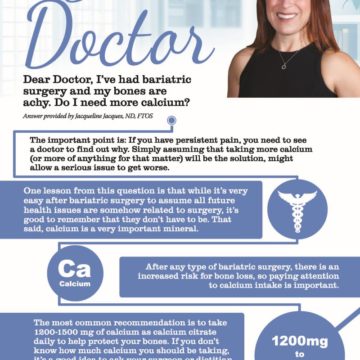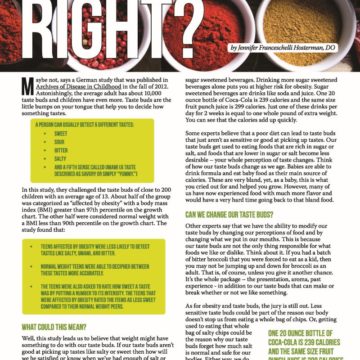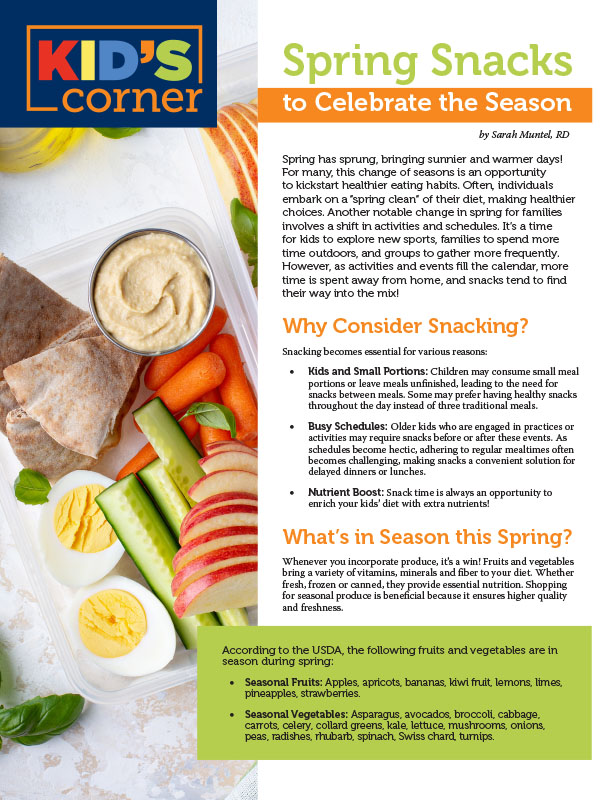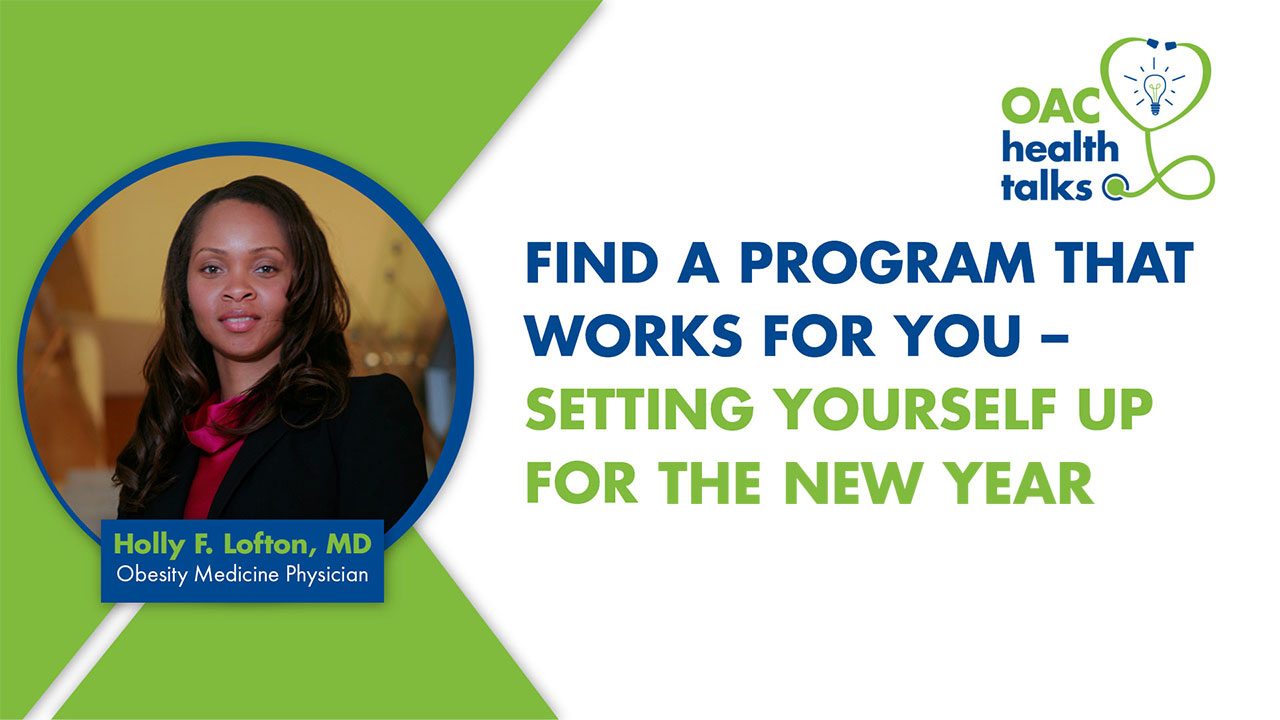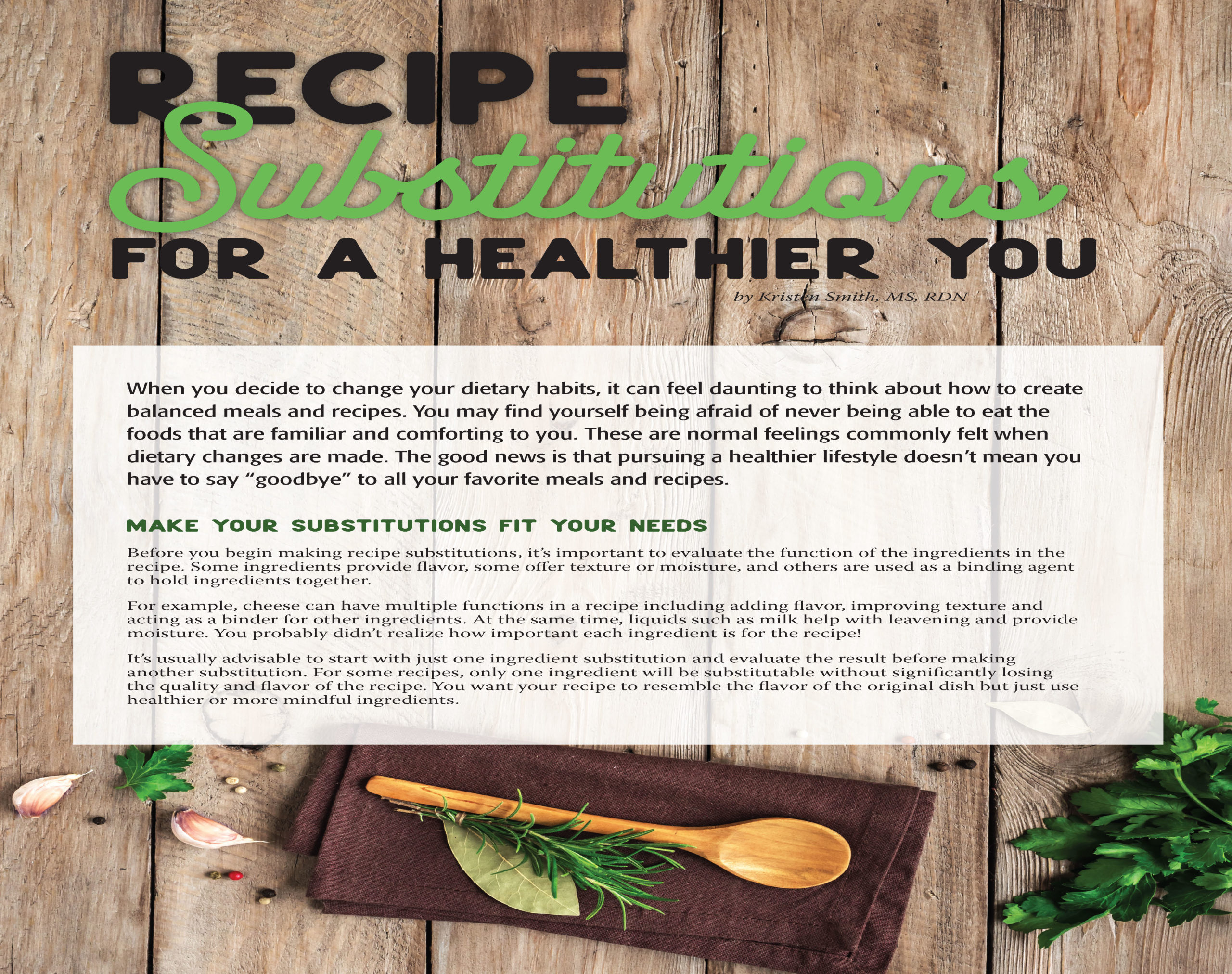Snack Attack!

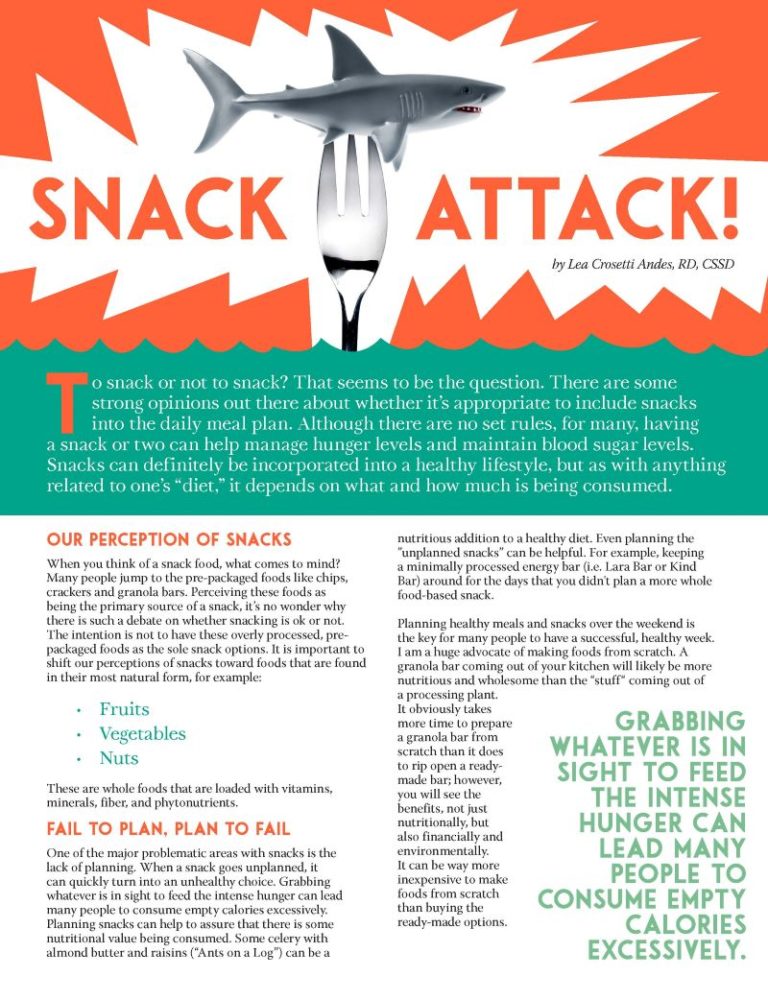
by Lea Crosetti Andes, RD, CSSD
Spring 2015
To snack or not to snack? That seems to be the question. There are some strong opinions out there about whether it’s appropriate to include snacks into the daily meal plan. Although there are no set rules, for many, having a snack or two can help manage hunger levels and maintain blood sugar levels. Snacks can definitely be incorporated into a healthy lifestyle, but as with anything related to one’s “diet,” it depends on what and how much is being consumed.
Our Perception of Snacks
When you think of a snack food, what comes to mind? Many people jump to the pre-packaged foods like chips, crackers and granola bars. Perceiving these foods as being the primary source of a snack, it’s no wonder why there is such a debate on whether snacking is ok or not. The intention is not to have these overly processed, pre-packaged foods as the sole snack options. It is important to shift our perceptions of snacks toward foods that are found in their most natural form, for example:
- Fruits
- Vegetables
- Nuts
These are whole foods that are loaded with vitamins, minerals, fiber, and phytonutrients.
Fail to Plan, Plan to Fail
One of the major problematic areas with snacks is the lack of planning. When a snack goes unplanned, it can quickly turn into an unhealthy choice. Grabbing whatever is in sight to feed the intense hunger can lead many people to consume empty calories excessively. Planning snacks can help to assure that there is some nutritional value being consumed. Some celery with almond butter and raisins (“Ants on a Log”) can be a nutritious addition to a healthy diet. Even planning the ”unplanned snacks” can be helpful. For example, keeping a minimally processed energy bar (i.e. Lara Bar or Kind Bar) around for the days that you didn’t plan a more whole food-based snack.
Planning healthy meals and snacks over the weekend is the key for many people to have a successful, healthy week. I am a huge advocate of making foods from scratch. A granola bar coming out of your kitchen will likely be more nutritious and wholesome than the “stuff“ coming out of a processing plant. It obviously takes more time to prepare a granola bar from scratch than it does to rip open a ready-made bar; however, you will see the benefits, not just nutritionally, but also financially and environmentally. It can be way more inexpensive to make foods from scratch than buying the ready-made options. In addition, you are paying for packaging, which can be wasteful and harmful to our environment. Again, it is a time investment, but it’s well worth it. Try to plan this type of food prep on the weekends or any day that you have more time.
Mindful Eating vs Snacking/Grazing
Another point that needs to be made is the difference between having a snack and snacking. Continuously grazing and snacking is not the same as having a well-balanced planned snack. Grabbing a few handfuls of this and that throughout the day can add up and still leave you feeling unsatisfied. This style of eating is also considered “mindless eating.”
When you acknowledge that food is being consumed and appreciate the flavors, this is considered more “mindful eating.” Mindful eating can not only help build a healthy relationship with food, but also helps with identifying the body’s hunger and fullness signals. There is also an aspect of “permission” that is given to eat when you plan a snack and sit down to enjoy it.
Snacking/Grazing
Whereas grazing or snacking can almost feel like “sneaking” foods sometimes, this can perpetuate an unhealthy relationship with food.
Make a plate – a small one. We are visual creatures. For many, the brain won’t register they are done eating until the plate is empty. Snacking out of the box can be a very dangerous event. Sometimes, our brain won’t often register we have had enough until we are either half way through the box or until it’s completely empty. Making a plate not only establishes the “permission” aspect of it being ok to eat, but it also helps with the visual signals of being done, which can help manage our portions.
It’s All About the Balance
Balance is always key to a healthy snack. You want to treat it like you would your meals, just a smaller one. I often hear people say that they can’t have crackers for a snack because they will eat the whole box. A large part of this is because of the volume needed for satiety. However, if you were to have a few crackers along with some hummus and carrots, that can help prevent the whole box being consumed because you now have fiber and water from the veggies, and the protein and fat from the hummus.
The idea of balance is to promote satiety while providing more nutritional value. Having just veggies can leave people wanting more and having just starchy carbohydrates can lead to overconsumption. Yet when paring them together and adding a protein or healthy fat – that can be the ultimate balanced snack.
Below are some sample snacks. Again, the idea is to incorporate balance with having some type of carbohydrate for energy, protein or healthy fat for lasting satiety, and vegetables for fiber to help with filling power and a nutritional punch.
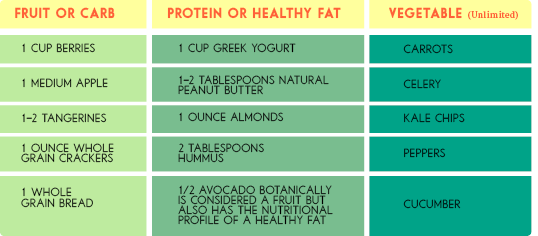
Wrapping it Up
Remember to plan. Take advantage of the days you have more time to get some healthy foods prepped for the week. Remember to incorporate balance. Having a carbohydrate with protein or healthy fat along with a vegetable is key to satiety and nutrition. Remember to plate it for the visual reminder. And always remember to sit and appreciate and enjoy your snack.
About the Author:
Lea Crosetti Andes, RD, CSSD, is a registered dietitian and board certified specialist in sports dietetics. With a strong background in both sports and bariatric nutrition, Lea coined the term and founded BariAthletes®. Her mission is to not only help bariatric athletes meet their specific nutritional needs but also help them embrace their inner athlete.
by Sarah Muntel, RD Spring 2024 Spring has sprung, bringing sunnier and warmer days! For many, this…
Read ArticleWith the holidays behind us and 2022 now here, many of us are ready to tackle our…
View Videoby Kristen Smith, MS, RDN Winter 2022 When you decide to change your dietary habits, it can…
Read Article




